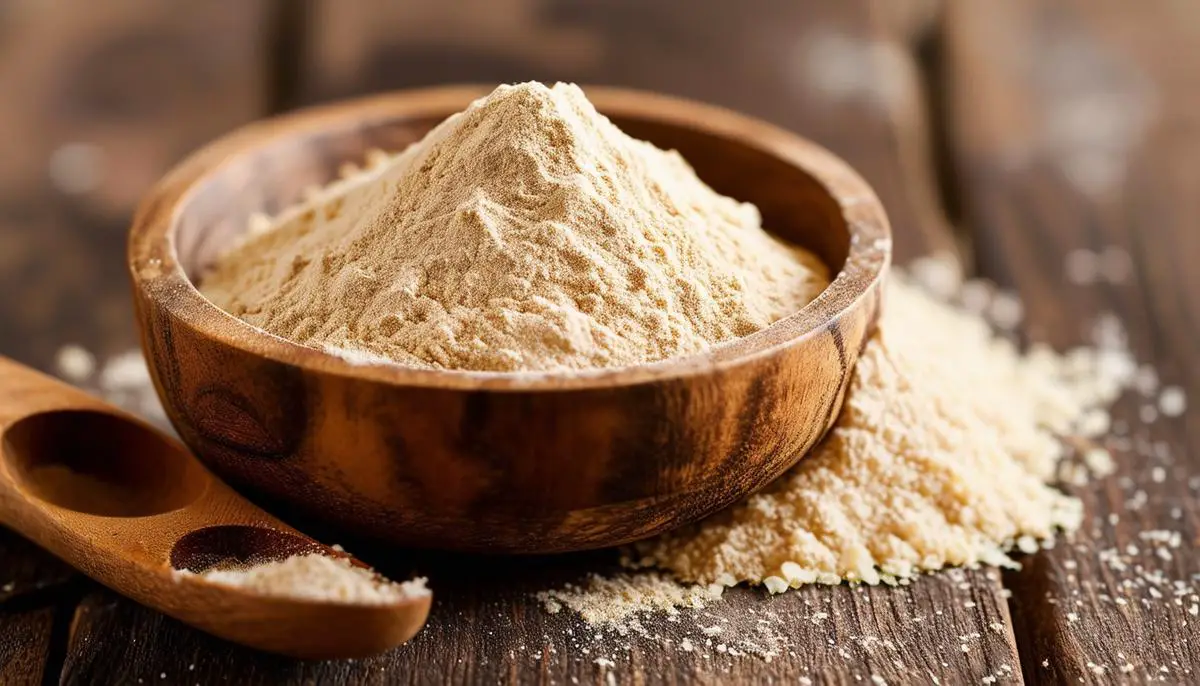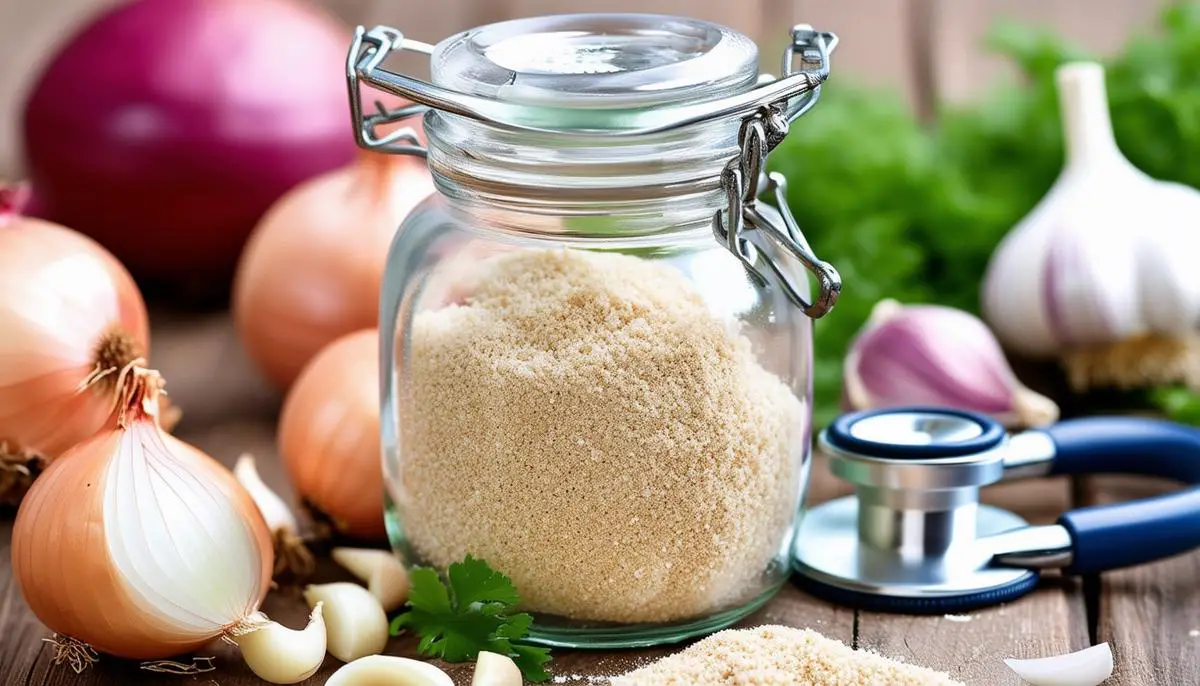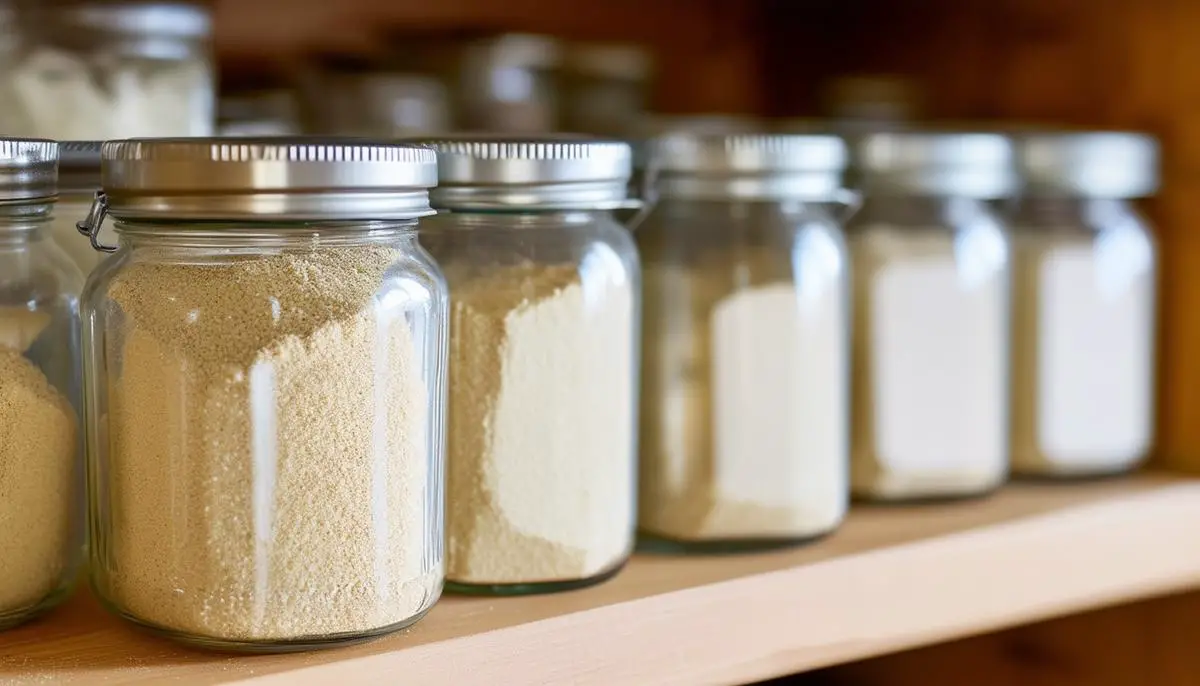
Essence of Minced Onion Powder
Minced onion powder emerges from carefully selected onions that undergo a thorough dehydration process. This method extracts moisture, enabling the preservation of the onion's potent flavors and nutritional contents, albeit in a condensed format. The dehydration phase ensures that the quintessentially sharp and slightly sweet nuances of the onion are not only retained but also intensified, laying a strong foundation for the resultant powder.
Once fully dehydrated, these onion flakes are ground into a fine powder. The grinding process is designed to create an ultra-fine texture that dissolves almost instantly when introduced into any dish. This fine consistency distinguishes minced onion powder from its chunkier counterparts, such as chopped or granulated onions, providing a smoother integration without the textural presence often imparted by larger bits.
The stability and long shelf life of minced onion powder enhance its appeal. Stored correctly in a cool, dry place, it retains its pungency for extensive periods, a stark contrast to fresh onions, which may spoil or sprout over time. This feature proves especially advantageous for infrequent cooking scenarios or in environments where fresh produce availability fluctuates seasonally.
In culinary applications, minced onion powder is not just a substitute for freshness but an entity in its own right. It boasts a distinct potency that fresh onions do not always provide, making it indispensable in seasoning mixes, dry rubs, marinades, and as a staple for those seeking depth of flavor with tangible ease of use. Its ability to melt into soups, stews, dressings, and even more delicate items like homemade breads or sauces validates its fundamental role in a wide array of recipes where consistency in taste and flavor concentration is paramount.
Nutritional Profile and Health Benefits
Minced onion powder, a dehydrated form of onion carefully prepared to preserve and intensify its health benefits, comes with a nutritional profile rich in essential vitamins, minerals, and antioxidants. This condensed seasoning carries significant amounts of vitamin C, an antioxidant known for boosting immune health and aiding skin rejuvenation. It contains low amounts of sodium, fat, and calories, making it a preferable choice for individuals monitoring their dietary intake closely.
The trace minerals present in minced onion powder, such as calcium, potassium, and magnesium, contribute to its health-promoting properties. Calcium is vital for maintaining healthy bones and teeth, while potassium helps to manage blood pressure levels, and magnesium aids in muscle and nerve function. This blend of essential nutrients makes minced onion powder an advantageous supplement for daily health management.
The presence of dietary fiber in minced onion powder also enhances digestive wellness by promoting a healthy gut environment and aiding in smooth digestion. This high fiber content is instrumental in preventing constipation and promoting regularity, which contributes to overall digestive health. The inclusion of natural antioxidants in minced onion powder helps combat oxidative stress and inflammation within the body, thereby supporting general wellness.
Research suggests that minced onion powder has potential blood sugar regulating properties1. The components in onions help manage blood sugar levels by improving insulin sensitivity and reducing glucose absorption in the gut. This makes minced onion powder an effective addition to the diet of those managing diabetes or predisposed to metabolic syndromes.

Culinary Versatility
Minced onion powder is often employed as an essential element across diverse culinary practices. Its ability to dissolve almost invisibly into layers of flavor makes it especially useful for creating complex spice mixes. For enthusiasts looking to elevate their barbeque or grilled dishes, this powder serves as a foundation in rubs. Mixing equal parts of salt, black pepper, minced onion powder, and perhaps a hint of smoked paprika can dramatically enhance the taste profiles of meats and vegetables.
Minced onion powder can be skillfully used in marinades. By incorporating it with ingredients like olive oil, vinegar, garlic, and herbs, it efficiently imparts a bold onion undertone, which softly permeates the food, enriching flavor without overpowering primary ingredients. This technique is particularly valuable for preparing meats that benefit from marination like chicken or pork.
In the realm of dressings and seasonings, minced onion powder proves indispensable. A simple vinaigrette of olive oil, balsamic vinegar, minced onion powder, a pinch of mustard, salt, and a sweetener like honey or sugar can transform a basic salad into a tasteful delight. The powder's keen ability to blend provides an even flavor distribution that often surpasses what chunky raw onions can offer.
The utility of this seasoning extends to soups and stews. Just a teaspoon can add profound depth to the basic broth or stock, enriching the entire flavor palette of the dish without the textural presence or added moisture that fresh onions would typically introduce. It's this inconspicuous integration that chefs and home cooks appreciate when perfect balance in seasoning needs to be achieved.
Considering its rounded, potent taste profile and the ease of storage and use, minced onion powder is an excellent alternative to fresh onions in many recipes. As a guideline, one tablespoon of minced onion powder can effectively replace one medium-sized fresh onion. This adjustment not only saves prep time but also ensures the flavors are consistently distributed throughout the dish, providing a practical solution for kitchen efficiency and flavor accuracy.

Storage and Shelf Life
For ideal storage of minced onion powder, ensure it is kept in an airtight container. The location should be cool and devoid of direct sunlight to maintain the integrity of its flavors. A dry environment is crucial to prevent the powder from clumping due to moisture exposure. Following these simple guidelines will significantly extend the shelf life and freshness of your minced onion powder, making it a reliable seasoning for various dishes year-round.

Recipe: Savory Onion Powder Rub
Ingredients:
- 2 tablespoons minced onion powder
- 1 tablespoon smoked paprika
- 1 tablespoon garlic powder
- 2 teaspoons kosher salt
- 1 teaspoon black pepper
- 1 teaspoon dried thyme
- 1/2 teaspoon cayenne pepper (optional for heat)
- 1 teaspoon dried rosemary
Instructions:
- In a small mixing bowl, combine the minced onion powder, smoked paprika, garlic powder, kosher salt, black pepper, dried thyme, cayenne pepper (if using), and dried rosemary.
- Stir the contents thoroughly to ensure all the spices are well-blended. This ensures an even distribution of all flavors.
- Transfer the rub to a spice jar or an airtight container. This step is crucial for maintaining the potency and freshness of the rub.
- Use immediately, or store in a cool, dry place away from direct sunlight and moisture, which can degrade the quality of the spices.
To Use:
- For meats: Lightly coat your choice of meat (such as chicken, beef, or pork) with oil to help the rub adhere better. Sprinkle a generous amount of the onion powder rub onto the meat. Rub the mixture into the meat evenly.
- For vegetables: Toss the vegetables with a little olive oil and then sprinkle the onion powder rub over them. Mix well to ensure even coating.
The rub imparts a savory, slightly spicy flavor that complements both meat and vegetable dishes beautifully, enhancing their overall taste with deep, aromatic layers influenced by the onion powder and assorted herbs.
Nutritional information per serving (1 tablespoon):
- kcal: 15
- carbohydrates: 3g
- protein: 0.5g
- fat: 0.5g
- sodium: 600mg
- fiber: 1g
- Akash MSH, Rehman K, Chen S. Spice plant Allium cepa: dietary supplement for treatment of type 2 diabetes mellitus. Nutrition. 2014;30(10):1128-1137.



